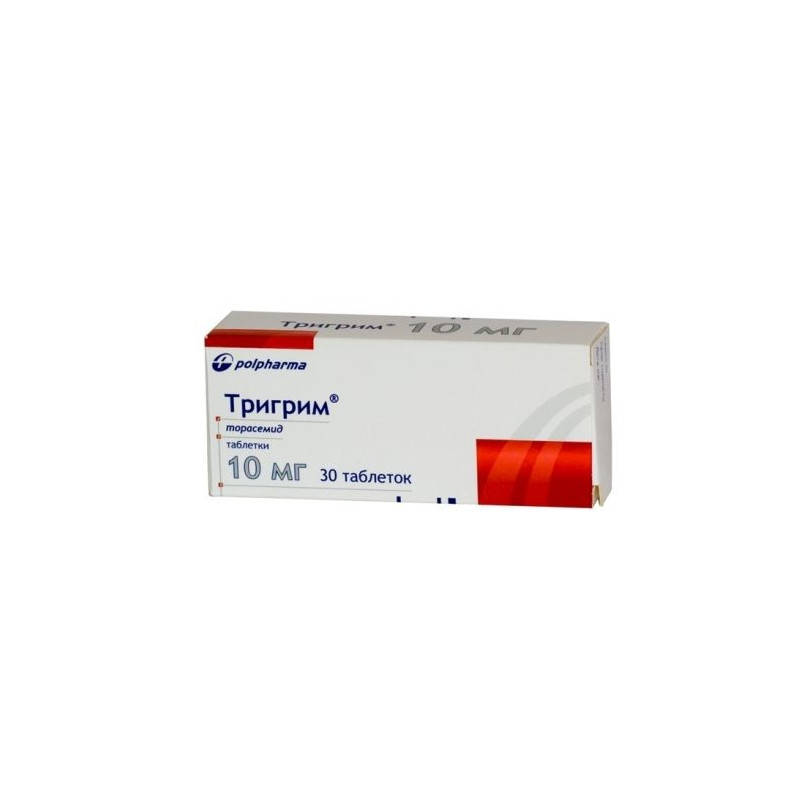



 All payments are encrypted via SSL
All payments are encrypted via SSL
 Full Refund if you haven't received your order
Full Refund if you haven't received your order
30 pieces
Trigrim has a dieter effect.
- swelling caused by heart failure, diseases of the liver, kidneys and lungs;
- primary arterial hypertension (used as monotherapy or in combination with other antihypertensive drugs).
- anuria;
- hepatic coma and precomatose state;
- chronic renal failure with increasing azotemia;
- arrhythmia;
- arterial hypotension;
- pregnancy;
- lactation period (no data on the use during lactation);
- age up to 18 years (efficiency and safety have not been established);
- Hypersensitivity to Torsemide and sulfonamides.
Carefully Trigrim should be used in patients with diabetes mellitus, gout, impaired water and electrolyte balance, impaired liver function, cirrhosis of the liver, and a predisposition to hyperuricemia.
Trigrim is prescribed for adults, by mouth, regardless of the meal.
When edema drug is prescribed in a dose of 5 mg 1 time / day. If necessary, the dose can be gradually increased to 20 mg 1 time / day.In some cases, it is recommended to use up to 40 mg / day.
From the hemopoietic system: in some cases, a decrease in the number of erythrocytes and leukocytes, as well as platelets.
Metabolism: in some cases - hypovolemia, electrolyte imbalance, hypokalemia, elevated serum uric acid, glucose and lipids.
Cardiovascular: in some cases - circulatory disorders and thromboembolism (due to dehydration), a decrease in blood pressure.
From the digestive system: symptoms of impaired gastrointestinal function, loss of appetite, dry mouth; in some cases - increased activity of liver enzymes (including GGT), pancreatitis.
On the part of the urinary system: acute urinary retention, increased urea and plasma creatinine levels.
CNS and peripheral nervous system: headache, dizziness, weakness, drowsiness, confusion, convulsions, paresthesias in the limbs.
From the senses: visual disturbances, tinnitus, deafness.
Allergic reactions: pruritus, rash and photosensitivity.
In the dark place at a temperature of no higher than 25 ° C.
